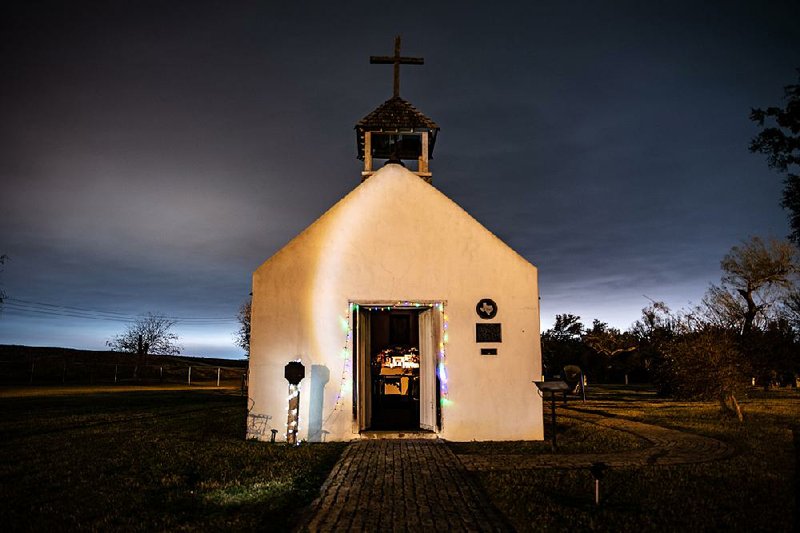McALLEN, Texas -- A judge ruled Wednesday that the federal government can begin surveying land for a border wall on property that houses a small Texas church against the wishes of the local Roman Catholic Diocese, setting up a potentially lengthy fight as the church claims a wall would violate its religious freedom.
The ruling came as President Donald Trump's administration appears to be moving forward with plans to access private land for a wall it wants to build along the southern border with Mexico; Trump on Tuesday night during his State of the Union address reaffirmed his desire to build a wall to secure the border and more carefully control immigration.
Along the stretch of southern Texas, the Customs and Border Protection agency now says it will take some residents to court to access their private land as the agency determines whether a border wall can be built on the properties. Protesters are camped in tents near a historic cemetery and a butterfly sanctuary that they argue will be disturbed should a wall be built -- and they are facing newly placed excavating equipment that appears poised to begin moving dirt as part of a congressionally approved section of the wall that received funding last year.
Landowners say they are increasingly on edge as they receive letters indicating the government wants their land along the Rio Grande, and they are poised for eminent-domain court battles that in the past have lasted a decade or more.
U.S. District Judge Randy Crane ruled that the surveying of the diocese's property -- work that should take just a few hours -- does not constitute a "substantial burden" on the religious function of the 170-year-old La Lomita Chapel, which lines the river in the border city of Mission.
The diocese owns the chapel grounds but leases it to the city as a park. Bishop Daniel Flores has resisted the government surveys on the grounds that any constructed barrier "violates his religious beliefs," said Mary McCord, a Georgetown University law professor representing the diocese. "The Church believes any access violates the sacred nature of the place."
John Smith, an assistant U.S. attorney in the Southern District of Texas who works on property issues related to the border barrier, said in court that the government already has received permission to survey neighboring properties and wants to push forward with the church property as part of the assessment process.
Smith said the church parcel is "the last section we don't have right of entry" to in the area, which is near the riverfront county park where Trump viewed the Rio Grande during a visit in January.
Smith said the federal government has no intention of disrupting religious activities at the chapel once a barrier is built.
The first nearby construction of the new barrier is set to begin shortly on a levee that cuts through two federal wildlife refuges upstream from the chapel.
As he has in other recent hearings about allowing surveyors onto private property, Crane sided with the government. Crane said he "can't see that allowing a few people on to do some surveying works is a substantial burden. Certainly the government's entitled to have some survey work done."
McCord said after the hearing that the church could not, in good conscience, grant access to the surveyors without a court order. The real battle for La Lomita, she said, will come if and when the government moves to take the property.
"This really is just step one," McCord said.
A Section on 02/07/2019
